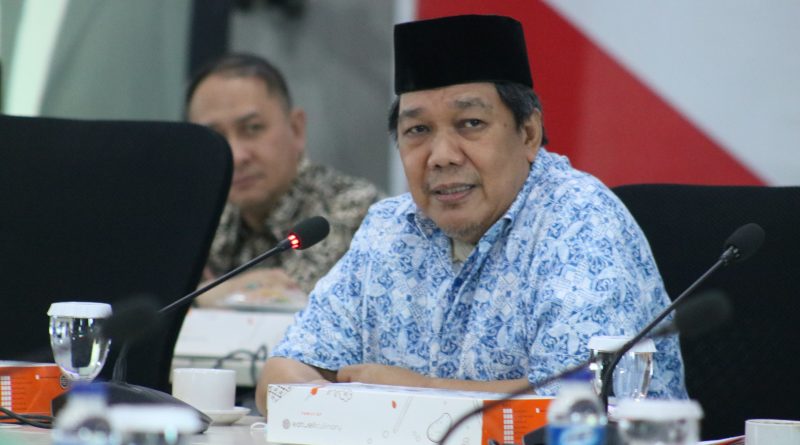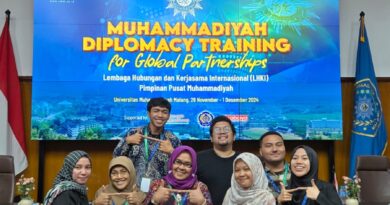Entrepreneurs Can Manage Halal Certificates in Muhammadiyah
(source: Entrepreneurs Can Manage Halal Certificates at Muhammadiyah | PWMU.CO | Progress Portal)
Entrepreneurs can apply for halal certificates for their products through the Muhammadiyah Central Leadership’s Halal Center (HC) Thayyiban Halal Inspection and Halal Study Institute (LPH-KHT).
This was conveyed by the Chairman of the LPH-KHT Muhammadiyah Central Leadership Ir Muhamad Nadratuzzaman Hosen MS MEc PhD at the Office of the Coordinating Minister for PMK Jakarta, Friday (9/6/2023).
He explained that the Muhammadiyah Central Leadership LPH-KHT is an institution that can issue halal certificates for entrepreneurs through regular channels with pratama status.
“Currently, the accreditation status of the Halal Product Guarantee Organizing Agency (BPJPH) is pratama which serves the Jakarta, Bogor, Tangerang and Bekasi areas,” said the 2020-2025 Baznas leader.
Now, he continued, a process of increasing pratama status has been carried out which will later be able to serve all regions of Indonesia and abroad.
According to him, the current position of LPH KHT is very strategic. Both in terms of opportunities and potential internal resources. Several products from China and other countries such as Japan and Korea are potential market shares for the process of checking the halal status of their products.
“This is also supported by the resources of LPH KHT which has 172 Muhammadiyah and Aisyiyah Universities, so it will be able to carry out halal certification activities abroad,” said the Secretary of the 2020-2025 MUI National Halal Council.
Local potential is also great, he continued. Currently, only two million entrepreneurs have halal-certified products out of a total of 21 million business actors.
So not only with universities, all the potential of the association must also be mobilized either with MSMEs, MEK, or the Higher Education Council.
Nadratuzzaman Hosen said that currently the government’s efforts to create a halal ecosystem deserve appreciation. Because through statutory regulations and derivative regulations, they dare to require halal status for products circulating in Indonesia.
However, this must be assisted by all components of society so that this condition is realized by maintaining quality so that we are not trapped in quantity targets.
If you only pursue quantity, he said, halal certificates could result in devaluation. This means that the level of public trust is decreasing because quality is not maintained in the halal certification inspection process.
“The government should not only pursue targets in quantity. “But we also have to pay attention to quality so that the level of trust and safety of the products consumed by the public improves,” said the UIN Jakarta lecturer.
Writer Aries Kurniawan Editor Sugeng Purwanto




